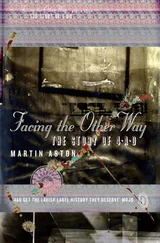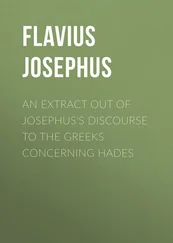Sarah Caudwell - The Shortest Way to Hades
Здесь есть возможность читать онлайн «Sarah Caudwell - The Shortest Way to Hades» весь текст электронной книги совершенно бесплатно (целиком полную версию без сокращений). В некоторых случаях можно слушать аудио, скачать через торрент в формате fb2 и присутствует краткое содержание. Жанр: Иронический детектив, на английском языке. Описание произведения, (предисловие) а так же отзывы посетителей доступны на портале библиотеки ЛибКат.
- Название:The Shortest Way to Hades
- Автор:
- Жанр:
- Год:неизвестен
- ISBN:нет данных
- Рейтинг книги:5 / 5. Голосов: 1
-
Избранное:Добавить в избранное
- Отзывы:
-
Ваша оценка:
- 100
- 1
- 2
- 3
- 4
- 5
The Shortest Way to Hades: краткое содержание, описание и аннотация
Предлагаем к чтению аннотацию, описание, краткое содержание или предисловие (зависит от того, что написал сам автор книги «The Shortest Way to Hades»). Если вы не нашли необходимую информацию о книге — напишите в комментариях, мы постараемся отыскать её.
The Shortest Way to Hades — читать онлайн бесплатно полную книгу (весь текст) целиком
Ниже представлен текст книги, разбитый по страницам. Система сохранения места последней прочитанной страницы, позволяет с удобством читать онлайн бесплатно книгу «The Shortest Way to Hades», без необходимости каждый раз заново искать на чём Вы остановились. Поставьте закладку, и сможете в любой момент перейти на страницу, на которой закончили чтение.
Интервал:
Закладка:
It may be that some of my readers would wish me to give a full description of this agreeable interlude, relating in detail the particular attributes of each ball bowled and each stroke played. Regretfully, I must disappoint them: such an account would not be germane to my narrative, nor is mine the pen to undertake such a task. The partnership ended in the nineteenth over, when Sebastian fell victim to an interesting and original interpretation of the leg before wicket rule on the part of one of the umpires — who was, I now remembered, a cousin of the barrel-chested painter. Sebastian, being a well-brought-up young man, walked back without argument or reproach to rejoin the group gathered round Dolly at the edge of the cricket pitch.
I had hoped that when his innings was concluded Selena might be tempted to pay less attention to the game — perhaps to wander about a little, looking at the shop windows of the Liston, and so providing me with an opportunity of private conversation with her. She chose, however — whether from motives of politeness, or because the game had reached a sufficiently dramatic stage to engage her interest — to remain in her place beside Dolly. I resigned myself to making, if I could not speak to her before the match was concluded, a less discreet approach than I had hoped.
Aristotle, I suppose, would have approved of cricket — a game which peculiarly demonstrates how a moment’s error may bring down the protagonist from the heights of prosperity to the depths of disaster. At ten minutes past six o’clock the Writers seemed in an enviable position: a mere forty runs needed for victory; thirteen overs in which to make them; eight wickets standing; and their captain still at the crease in apparently invincible form. By half past the hour matters were very different.
The two batsmen who succeeded Sebastian (a minor poet and the nephew, I believe, of the epic novelist) were out of form or out of luck; their wickets fell before the score reached a hundred. Leonidas played a charming little innings, giving signs of having inherited something of his father’s talents; but he played at a ball which his father would have left to its own devices, and was caught behind the wicket with only a dozen runs to his credit. Four further batsmen (of whose literary achievements or connections I am unable to give particulars) came and went without making much contribution to the total; and the Writers, at the fall of their penultimate wicket, still needed six runs to win.
The influential critic and belles-lettriste who occupied eleventh place in the batting order, though undoubtedly familiar with Aristotelian principles, had assumed at some much earlier stage that his services would not be called on and that there was no reason to reject the generous offers of lager made by those anxious for his goodwill. After an unsteady progress to the wicket he stood leaning heavily on his bat, evidently grateful for its support, and smiled with hazy benevolence at those about him. When the bowler began to hurl projectiles in his direction, he took no offense at this unfriendly conduct but gently waved his bat in the air in what seemed to be a gesture of forgiveness and good fellowship. By some dispensation of Providence his wicket survived the three balls which remained of the over.
It could not be supposed that such a miracle would be repeated. Unless Constantine were able to make the necessary runs during the next over, the Artists would be assured of victory: it was merely a question — since his partner was clearly in no condition to participate in any running between the wickets — of ensuring that the ball never reached the boundary. The Artists accordingly set a defensive field.
Constantine, with Homeric calm, prepared to receive the bowling, looking carefully about him for any vulnerable space between the fieldsmen. The first four deliveries, however, all rather wide outside the leg stump, gave him no opportunity for any scoring stroke. It seemed to me — I suppose this cannot actually have occurred — but it seemed to me that all those in the Liston held their breath as he waited for the fifth ball of the over. It was slightly short of a length, and he took two majestic paces down the wicket to meet it. The sunlight gleamed on his bat as he drove the ball high over deep mid-on.
I heard a cry and a crash of breaking glass; I felt rather than saw a massive figure hurtling towards me; and I was enveloped in darkness.
CHAPTER 16
I looked up into eyes the color of lapis lazuli.“My dear Professor Tamar,” said Leonidas Demetriou, “I do hope you haven’t hurt yourself.”
“I feel,” I said, “no pain.” I feared this might signify that my injuries were unusually grave; but I accepted the boy’s assistance in rising from the undignified position in which I found myself. “Would you,” I continued, “be kind enough to tell me what has happened? Was I struck by the cricket ball?”
“Oh no,” said Leonidas, with his slightly malicious Byzantine smile. “Oh no, Professor Tamar, the ball was going far too high to have hit you. It went through the window of the cafe over there. The man who owns the cafe was rather put out about it — my parents are busy saying soothing things to him. But the lunatic fielding at mid-on thought it might be a catch — idiotic of him really, it was six all the way. He was running so hard to get to it, and not looking where he was going, that he went straight into your table and knocked your canopy down on top of you. And he’s quite a big chap, I’m afraid. I’m really extremely sorry.”
I considered his explanation and found it consistent with the evidence.
“Well,” I said, “I am glad at any rate that the Writers have been victorious. You are not, as it happens, my only acquaintance in the side. Sebastian Verity—”
“Oh yes, of course, Sebastian is a colleague of yours, isn’t he? And Selena — Miss Jardine — who is also a friend of yours, is here with him. Have you seen them yet? Do they know you’re here?”
“No,” I said. “My coming to Corfu was a matter of impulse and will be a surprise to them.” I looked towards the place where Selena and Sebastian had been sitting; but they were no longer there, nor could I see them elsewhere in the Liston. Indeed, although it could hardly have been for more than a minute or two that I had lain dazed and helpless under the wreckage of the canopy, the whole Demetriou family, with the exception of Leonidas himself, had somehow managed in that time to disappear from view. “I was meaning,” I went on, “to have a word with them when the match was over, but I seem to have lost sight of them. Do you know where they might have gone?”
“They’ve gone up to the Citadel,” said Leonidas. “My father said it was unthinkable for them to leave Corfu without seeing the view from the eastern summit, so they had to promise to go straight up there as soon as the match was finished. Do you want to follow them, or would you rather wait to see them when they come down again?”
My uneasiness returned. I did not imagine, certainly, that the Citadel would be deserted: on a fine evening in the height of summer, it would be surprising if my friends ever found themselves out of sight and earshot of at least half a dozen fellow tourists engaged on a similar exploration. Thinking, however, of its precipitous battlements; of the massive blocks of stonework poised above its narrow pathways; and of the inscriptions which one finds there commemorative of destruction and violent death — thinking of these things, and the apprehensions which had brought me to Corfu—
“I think I should prefer,” I said, “to follow them up to the Citadel.”
The boy appeared to assume that he should come with me. Reflecting that it was some time since I had last visited the Citadel and that unguided I might not strike on the most direct route to the eastern summit, I was not displeased to have his company. We set forth together across the Esplanade.
Читать дальшеИнтервал:
Закладка:
Похожие книги на «The Shortest Way to Hades»
Представляем Вашему вниманию похожие книги на «The Shortest Way to Hades» списком для выбора. Мы отобрали схожую по названию и смыслу литературу в надежде предоставить читателям больше вариантов отыскать новые, интересные, ещё непрочитанные произведения.
Обсуждение, отзывы о книге «The Shortest Way to Hades» и просто собственные мнения читателей. Оставьте ваши комментарии, напишите, что Вы думаете о произведении, его смысле или главных героях. Укажите что конкретно понравилось, а что нет, и почему Вы так считаете.












